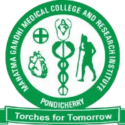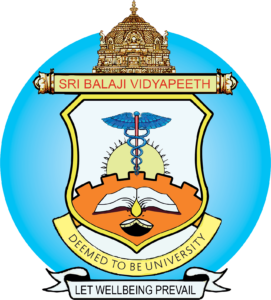Forensic Medicine



Overview
The Department of Forensic Medicine and Toxicology of Mahatma Gandhi Medical College and Research Institute (MGMCRI), has been functioning since from the inception of the institute in 2001. The department is well-equipped and fully staffed department and manned by faculties from different parts of India with many years of experience behind them.
The teaching and training in Forensic Medicine and Toxicology subjects will commence at the beginning of Phase II and continue till Phase III – Part I. The main role and responsibility of Forensic Medicine and Toxicology department is to teach undergraduate students about Medico-Legal responsibilities during the practice of medicine as a physician.
The faculties of Forensic Medicine and Toxicology train the students in criminal matters and connected Medico-Legal Cases while making observations and inferring conclusions by logical deductions during their participation.
Teaching of undergraduate students in Forensic Medicine and Toxicology is to prepare them to function as Medico Legal physicians; Aims at providing comprehensive knowledge of the Medico Legal Cases (MLC); providing the student comprehensive knowledge of the Post-mortem (PM); in order to enable him / her to achieve complete understanding of Medico-Legal responsibilities; Knowledge pertaining to law related to medical practice, medical negligence, criminal matters, codes of medical ethics, Identify the basic Medico-Legal aspects of hospital & general practice, Medico-Legal aspects and findings of post-mortem examination in case of death due to common unnatural conditions & poisonings are taught to the students theoretically and practically during their class hours.
In continuation the knowledge regarding Diagnose, manage and identify legal aspects of common acute & chronic poisonings, analytical toxicology, Medico-Legal responsibilities, Detect occupational and environmental poisoning prevention and epidemiology of common poisoning and legal aspects related to Workmen’s Compensation Act are also taught to the students in theoretical and practical class sessions.
Skills pertaining to make observations & findings at post-mortem examination, observing the principles of medical ethics during their practice of profession, Diagnose & treat common emergencies in poisoning, managing chronic toxicity, to initiate enquiries regarding the observations and logical inferences in criminal matters and Medico-Legal problems are developed by the students during their Forensic Medicine and Toxicology classes.
The department is mainly involved in imparting medico-legal knowledge to the undergraduate and postgraduate students. Clinical Forensic Medicine unit provides knowledge to the students regarding legal implications of emergency medical services.
Department Unique (KEY) Features
- With Unique Forensic Museum in Puducherry
- Uses various innovative methods such as,
1. Self-learning Modules
2. Integrated Teaching Interactive Sessions
3. Role Plays
4. Mock Court
5. Hands-on training sessions for undergraduates - Mortuary is equipped to conduct 2 autopsies simultaneously
- Equipped with facilities and manpower to conduct post mortems on the spot
- Deals with teaching 250 MBBS students per year
Objectives of the Department
- To impart Medico-legal knowledge on different aspects of medicine to students so that they are fully capable to deal with such issues in their clinical practice.
- Training on proper medicolegal documentation and examination of cases to facilitate an atmosphere of learning and research.
Mission
- To develop a well – organised department with all modern teaching facilities to train Undergraduate, Postgraduate and Medical officers to cater to Medico – Legal Services to the community.
- To develop an atmosphere of Research and Innovations so that faculty can develop their competence to National and International standards.
Goals
- To train the students in Medico-Legal Autopsy and Clinical Forensic Medicine (CFM); to apply their medical knowledge in the administration of Justice.To develop state of the Art
- Departmental Museum and Autopsy centre to train Undergraduate and Postgraduate students.
- To start Poison Detection Centre (PDC) with inter departmental coordination for research and patient care.
- To educate Stake holders (Faculty and students) on up-to-date Medico-Legal Issues.
Research
- To involve Undergraduate students in research activities such as Students Indian Council of Medical Research (ICMR) projects Short Term Studentship (STS).
- To conduct various researches with respect to Medico-Legal problems faced by medical professionals in day to day aspects.
- Identify the problems
- Provide solution
- Demographic profiling
- Support investigations
- Relate to crime scene
- Crime scene to convict
Student Outcome
| Course | Academic Year | Month | Percentage |
| II – Year M.B.B.S UG Degree | 2015 –2016 | December | 97 % |
| June | 78 % | ||
| 2016 –2017 | January | 88 % | |
| July | 81 % | ||
| 2017 –2018 | January | 88 % | |
| July | 97 % | ||
| 2018 –2019 | January | 93 % | |
| July | 77 % | ||
| 2019 –2020 | January | 83 % | |
| 2020 –2021 | October | 100 % | |
| March | 97 % | ||
| 2021 –2022 | September | 82 % | |
| 2022 –2023 | February | 100 % | |
| III – Year M.B.B.S UG Degree | 2022-2023 | February | 100 % |
| May | 91 % |
Innovation and best practices
- Advancements in technology are transforming health care at a rapid pace. A new type of thought leadership is needed to prepare professionals with the clinical skills to diagnose symptoms and treat patients, invent new technologies and rapidly move these innovative ideas to practice.
- Mahatma Gandhi Medical College and Research Institute supports the Innovation and best practices developed by the Department of Forensic Medicine and Toxicology, which undertakes fundamental and translational research.
- This Innovation and best practice initiated in the department is successful in attracting the students to involve in activities which aim to develop student’s knowledge.
- The learning through innovation and best practice is well appreciated. It has gained immense popularity and acceptance among the undergraduate and postgraduate students. This gives an approach for advancement of learning, teaching and research activities among and between the constituent colleges.
- All the students (undergraduate and postgraduate) are benefitted through the innovation and best practice.
- In the Department of Forensic Medicine and Toxicology, the Innovation and Best practices developed are listed below.
1. Mock Court
2. Novel Museum & its Innovative Methods
3. Poster Presentation by Students
4. State – of – the – Art Departmental Museum
Future Plans
- To develop a well-organized department with all modern teaching facilities to train Undergraduates, Postgraduates & medical officers to cater to Medico-Legal services of the community.
- To develop an atmosphere of research and innovations so that faculty can develop their competence to national and international standards
- To train the students in Medico-Legal autopsy & Clinical Forensic Medicine to apply their medical knowledge in the administration of justice
- To develop state of the art departmental Museum and Autopsy centre to train Undergraduates and Postgraduates students
- To start PDC (Poison Detection Centre) with interdepartmental coordination for research & Patient care
- To set-up Analytical Toxicology Lab to detect the nature of poison for the cases received in Casualty.


